If you think you’re the only one not getting enough shut eye, you might want to sleep on it. According to the Centers for Disease Control and Prevention, more than a third of U.S. adults or about 83 million people aren’t getting enough sleep.
Whether it’s work or thoughts about the stresses of everyday life, people all over the country are being kept wide awake when they should be sleeping.
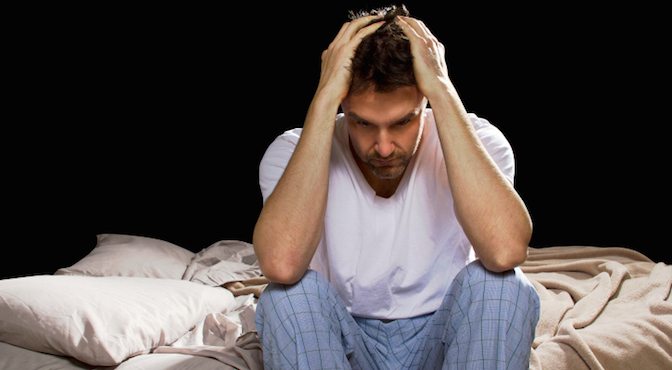
The CDC recommends adults get at least seven hours of sleep per day. While that’s a challenge for many, this post is meant to help you get better sleep by improving your sleep hygine in a few easy steps.
Regulate Exposure to Light
Believe it or not, light has a huge effect on your sleep cycle. Light regulates the release of melatonin, a naturally-occurring hormone that induces sleepyness. Your brain tends to secrete more melatonin when it’s dark.
Thus, you should dim the lights as you approach bedtime. This is not the time you fall asleep, but the time you get ready for sleep.
Avoid electronics two to three hours before bedtime as the blue light emitted by TVs, cell phones, computers and tablets can suppress melatonin.
Try reading a book or listening to an audio title instead. Music can also help, but opt for something relaxing. Bedtime probably isn’t the best time to crank up your Party All Night playlist.
If you can’t help but watch a movie or TV show after a hard day’s work, try reducing the screen’s brightness. Also, avoid programs that are mentally stimulating. Perhaps, a comedy would suit you better at night than a high-octane action flick.
On the other hand, you want to expose yourself to as much light as you can in the day or during your working hours. Try drinking your coffee outside or eating breakfast by a window. Take steps to allow as much natural light into your home or office as possible. Go outside during your break.

Authority Nutrition
Exercise Regularly
Regular exercise can boost the quality of your sleep, according to HelpGuide.org, a self-help site run in collaboration with Harvard Health Publications. Exercise can also fight the symptoms of insomnia and sleep apnea.
The more vigorously you exercise, the better your sleep quality would become. Still, even just walking 30 minutes a day can benefit your overall sleep health.
However, you should avoid exercise especially strenuous workouts close to bedtime. Most experts suggest you finish a workout at least four hours before bedtime.
Be patient. It can take several months before you start experiencing the full sleep benefits of regular exercise.

businessinsider.com
Eat Your Way to Better Sleep
Even though most doctors suggest you should avoid big meals two to three hours before sleep, some foods contain sleep-inducing properties. Consider the following snacks to help you snooze.
Bananas: This food is loaded with potassium and magnesium, which help the muscles relax. It also contains tryptophan which the body uses to produce melatonin and serotonin, a sleep-inducing neurotransmitter.
Glass of warm milk: Mom was right. A glass of warm milk, if you can utter it, promotes sleep with a heavy dose of tryptophan. Calcium also helps regulate the release of melatonin.
Almonds: A handful of these before bed would provide a rich dose of magnesium and the right amount of protein to help you sleep.
Cherries: According to research published in the Journal of Experimental Botany, cherries are among the few natural sources of melatonin. If cherries are not in season, try cherry juice or the dried variety.
Decaf tea: Most teas promote relaxation. Chamomile tea can induce sleep with glycine, which calms the nerves and muscles. Green tea contains thymine, which can also induce sleep. Always check the label to make sure the tea you’re drinking at bedtime is not caffeinated.
Oatmeal: A bowl of oatmeal provides calcium, magnesium, phosphorus, silicon and potassium — all properties that can relax you and help you sleep. Avoid sugar as it tends to suppress melatonin.
Jasmine Rice: According to a study published in the American Journal of Clinical Nutrition, high glycemic-index foods like Jasmine rice can promote sleep by boosting tryptophan. Men in the study slept an average of nine minutes after consuming Jasmine rice.

AARP
Maintain a Relaxing Bedtime Environment
Many doctors say most people sleep best in cool, dark, comfortable and quiet rooms. Consider the following steps to make sure your bedroom meets these criteria.
- Keep your room at around 55 degrees fahrenheit
- Shut off all lights and try using blackout curtains or wear a face mask
- Wear earplugs if it’s too noisy or consider using a white noise machine
- Make sure your bed is comfy. If you’re waking up with back aches or neck pain, experiment with different comforters, foam toppers or pillows that provide more or less support.
- Make sure your alarm clock is facing away from you to avoid the light and the urge to keep starring at it as you try falling asleep. Eventually, your internal clock would be set and you’ll be able to get up on time without it.
Remember, a comfortable bedtime routine sends a powerful signal to your brain alerting it that it’s time to wind down and prepare for sleep.
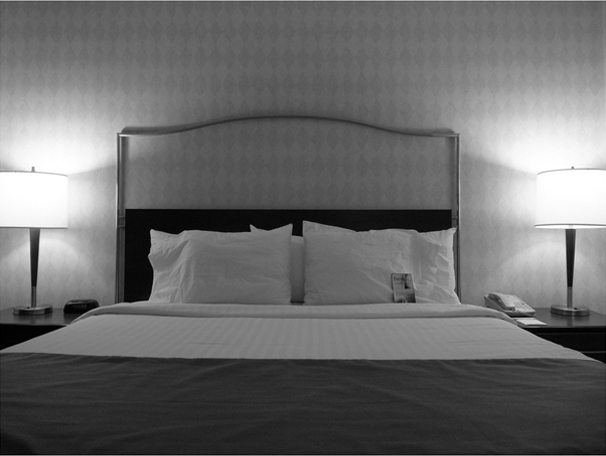
HomeArena
Relax
For a lot of people, “just relax” is easier said than done. Everyday stresses like work life, family and financial obligations can keep one’s brain firing through the night. The anxiety these stressors induce can also keep you awake no matter how exhausted you are.
However, you can practice a few relaxation techniques to wind down your mind during bedtime.
- Take a cool shower
- Perform some light stretches
- Deep Breathing: Close your eyes and take deep slow breaths, with each breath being deeper than the last.
- Muscle Relaxation: Starting with your toes, tighten the muscles as much as you can before completely relaxing them. Work your way to the top of your head.
- Go to your happy place: Close your eyes and picture yourself in the most calming and comfortable place you can imagine. Focus on how relaxed this place makes you feel.
Thinking or worrying about not being able to sleep only keeps your mind stimulated. You don’t want that at bedtime. Remember, bedtime is not the time that you drift into sleep. It marks the time you begin preparing your body and mind for sleep. Very few people doze off the moment their bed hits their pillows.
You’re goal at bedtime should be to relax, not to sleep. The process takes some time.
If you find yourself lying awake in bed, get up and do something you find soothing or something that you find completely boring until you feel tired enough to hit the sack again.
With that said, never go to bed until you are tired enough. Also, use your bed for sleep and sex only. You want to associate your bed with sleep. So don’t work, read or watch TV while in bed.

freelancefolder.com
Stick to a regular Sleep-Wake Cycle
To enhance sleep quality, doctors recommend you maintain a regular sleep-wake cycle. This is often called your circadian rhythm.
Try to go to bed at the same time each day and wake up at a set time. Research shows that people tend to feel more refreshed and energized after sleep if they stick to regular sleep-wake cycles rather than sleeping the same amount of hours at different times each day.
You should maintain your circadian rhythm and avoid sleeping in even on weekends. The more your weekday/weekend sleeping patterns vary, the more severe your jet lag-like symptoms would be after the weekend.
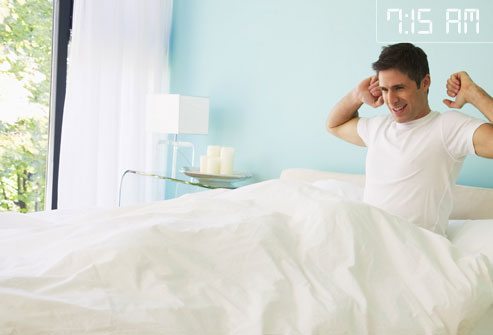
Blogspot
Come up With Your Bedtime Routine
Try some of these steps until you find what works best for you. Each activity and technique mentioned above will work differently for people. After you’ve developed a bedtime routine that works best for you, try sticking to it.
Best of luck and sweet dreams!

PowerOfPositivity



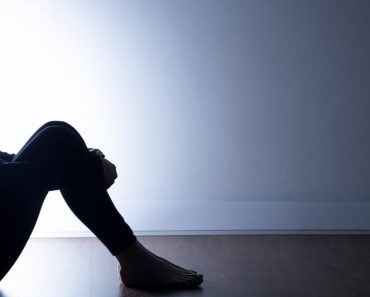





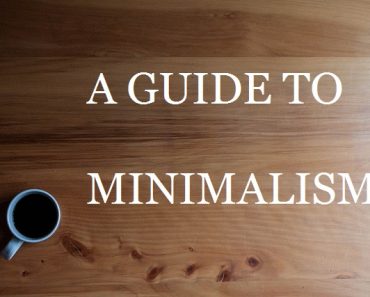
I never got enough sleep. I suffer from sleep deprivation. Thanks man